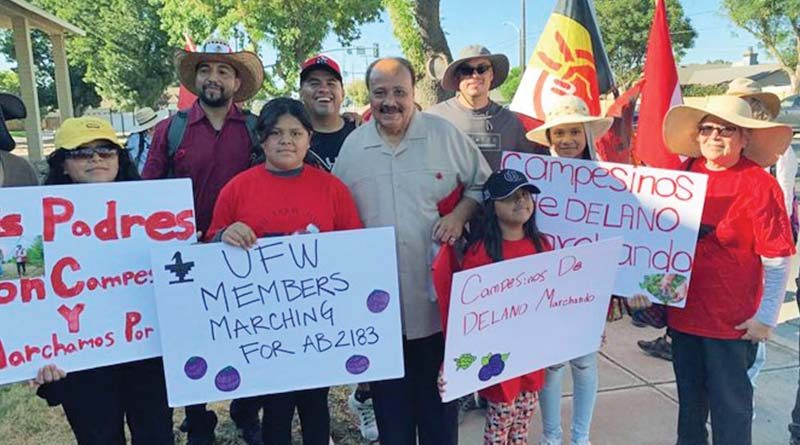Farm workers recreate historic march
By Sheri Williams
On August 3, farm workers with the United Farm Workers union launched a 24-day, 335-mile “March for the Governor’s Signature” from the UFW’s historic home in Delano, California.
They arrived August 26 at Sacramento’s Southside park for a last-mile march to the State Capitol, recreating the historic march led by Cesar Chavez 56 years ago.
“I’ve worked in all the crops—grapes, cherries, peaches, nectarines. I’m marching because I want representation and to be respected,” Lourdes Cardenas, a farm worker for more than 20 years, told media.
Farm workers are marching to win the right to vote for a union free from intimidation and threats, the union explained in a statement.
“This march is to convince Gov. Gavin Newsom to sign AB 2183, the Agricultural Labor Relations Voting Choice Act (AB 2183-Stone). The bill would give more choices to farm workers so they can vote free from intimidation. Farm workers would be able to vote in secret whenever and wherever they feel safe.”
The three-week march has drawn thousands of supporters along the way, and is meant to draw attention to the fact that Newsom vetoed a similar measure last legislative session.
Since that veto, UFW has rejoined the California Labor Federation, and the bill has become a priority for the Federation’s new leader, Lorena Gonzalez. Gonzalez joined marchers for part of their journey to show support.
“As we continue to support workers in the high-tech industry, workers in retail, workers at Starbucks, workers in hotels, workers in every aspect of life, I think in California to support our farmworkers just ensures that mind-set,” she said. “Every poll I’ve seen shows that people are pro-union and yet we still have all these barriers. California can lead the way, if we can utilize our laws in the most proactive way possible,” Gonzalez told media covering the event.
Community members and organizations in each town have supplied key support: a morning blessing when marchers depart; organizing residents to participate and help; providing food, water, and more for the marchers.
